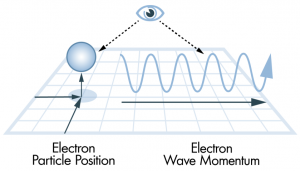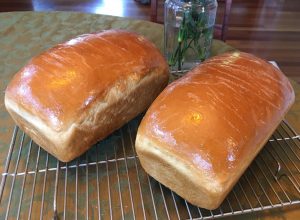In physics, the uncertainty principle asserts that we cannot know the precise values of a system even when we know all of its initial conditions. In the case of an electron, for instance, we can know its position, but not simultaneously its momentum. One or more of its variables will always be uncertain.

I think I’m feeling a little like that electron.
In the midst of the coronavirus pandemic, it seems like my whole world has been turned upside-down and uncertainty reigns.
As the seasons are changing, I’m frustrated by the plans I would normally be making.
- Can I be planning a summer vacation?
- Will I be able to have people over for a barbeque?
- Can we gather to watch fireworks on the fourth?
- Will school resume in the fall?
Kevin Antshel, psychologist at Syracuse University, explains that, “The fear of the unknown is possibly the most fundamental fear of human beings.” He goes on to say, “We’re hard-wired to avoid uncertainty, because it makes us feel lots of negative emotions.”
So how can we move through this time of uncertainty? How can we better cope when answers to our questions will not be forthcoming?
First of all, it’s not so much what is happening as much as it is how we view and react to what is happening.
We could say, “I’m trapped at home against my will.” But we could also say, “I’m grateful to have such a beautiful home to enjoy this spring.”
We could say, “We’re all in danger from exposure to the coronavirus.” Or we could say, “I’m creating an environment and a set of practices to keep myself and my family safe.”
It’s called reframing.
We don’t have to change the facts—instead we create a different narrative about what the facts mean personally. When we create a more positive frame, a more positive narrative, our anxiety will be diminished and we’ll be able to accept what’s going on with less emotional distress.
The other tip is to spend some time doing things that you can control. With uncertain times, our ability to control shrinks. Our sense of being “in charge” is diminished.

To make up for this, let’s focus on a hobby or pastime where you can exercise your control and create a sense of accomplishment. Maybe it’s time to hone your culinary skills (I’m working on perfecting some of my bread recipes). Maybe it’s time to get out the jigsaw puzzles (something that you can predictably enjoy and complete).
In any case, don’t let the ambiguity of life right now turn into emotional torment. You can take charge of your emotions. You can use reframing and a shift in focus to improve your mood, reduce anxiety, and create a sense of accomplishment.
